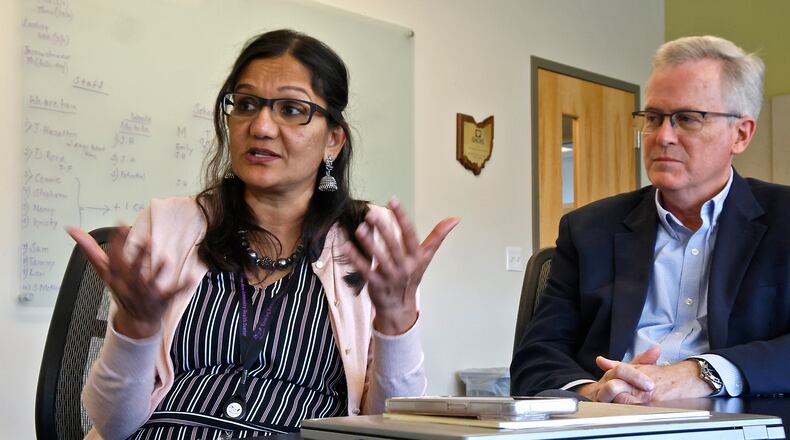“We just have to make sure we invest in the human capital and kind of shift from not worrying continuously about recruitment, but thinking more in the lines of retaining ... because there is so much lost in recruitment, in the time it takes for someone to gain speed,” Teegala said. “And so trying to think of some creative ways how an employee can go home and feel satisfied that ... Rocking Horse is not just a job, but a part of their life.”
Teegala has been at the health center for about 16 years.
“She has a lot of experience being here, so she understands the organization, she understands the community,” Youngman said. “She has a clinical background, so she understands the medical component of things as well as additional education and training in terms of understanding the business aspect of things. But I think beyond any of those things, she really has a heart for patients. She’s an excellent physician.”
The number of Haitian immigrant patients who do not speak English has continued to grow significantly since the start of the year, Teegala said. She said in August or September, the health center reached the same number of non-English speaking patients as the entirety of 2022.
Rocking Horse first started seeing pregnant Haitian immigrants, which shifted to include young children, which then expanded to families and people with chronic conditions, Teegala said.
“We might feel that, ‘Oh boy, I don’t understand (choosing) Springfield,’ but for them, this is such a safe environment, so it is only going to grow,” Teegala said.
Teegala said this year, over-the-phone and app translation services will cost about $375,000-$400,000. This does not include interpreters who work in the building for the health center, and it’s something for which Rocking Horse will have to adapt and potentially seek aid.
She said since 2007 she has learned that she and the organization cannot do it all, and it is important to collaborate with other organizations and people.
Teegala said Rocking Horse will also focus on more policy and advocacy in the future in order to get the state- and national-level support it needs.
Youngman said that in his time as CEO he has learned the value of the federally qualified healthcare model, which could be a model for the country at large, as well as thinking creatively for difficult problems like the COVID-19 pandemic.
Teegala echoed this, saying the pandemic was healthcare’s “war,” with Rocking Horse dealing with the “double whammy” of care during the pandemic and in the aftermath.
Rocking Horse is a “special place,” that has a special place in the community, Youngman said, and he looks forward to it continuing its path.
Teegala said she is grateful for the health center’s community partners and support, and for the around 14,000 patients who trust its providers with their health and their lives.
“You have to be privileged to earn that trust and do, continuously, excellent work so they can come back,” Teegala said. “We’re very humbled by that and humbled by what the community thinks of us.”
About the Author
